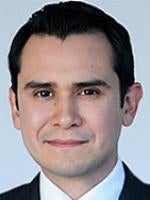Family Health Physical Medicine v. Pulse8 began like many other TCPA cases over the years, with a seemingly innocuous fax:
[I]nviting recipients to attend a “Monthly Webinar Series” entitled “Open your Mind to Behavioral Health Coding.” . . . The fax stated that the attendees of the webinar can “[e]xpand [their] knowledge by learning how to successfully document and code conditions that are due to substance abuse, major depression, schizophrenia, bipolar, and other mental health disorders.” . . . The Fax also provided a link to register for the webinar and to win an Amazon gift card by completing a webinar survey.[1]
Because the fax did not offer anything for sale, the plaintiff claimed it was a “pretext” to more advertising. Unimpressed with the theory, the defendant moved to dismiss, and the U.S. District Court for the District of Maryland agreed, relying on some now-familiar authority from the TCPA fax landscape. Key to the decision was the fact that the complaint did not contain any allegations regarding the specific content that would be shared with attendees at the webinar.[2] The court opened its analysis with “[t]he operative questions . . ., whether the Fax advertises ‘the commercial availability or quality of any property, goods, or services’ and second, what standard this court should apply to answer that question.”[3] Those questions, reasoned the court, could be answered with help from the PDR Network TCPA litigation:
In PDR I, [the District Court] held that the fax was not an unsolicited advertisement because it was advertising something free . . . Nonetheless, the plaintiff . . . “strenuously urge[d]” the district court to defer to a 2006 order from the Federal Communications Commission [that] expressly states[,] “facsimile messages that promote goods or services even at no cost . . . are unsolicited advertisements under the TCPA’s definition.”
[Following an appeal], the Fourth Circuit agreed with both parties that the relevant portions of the 2006 FCC Order are interpretive, such that a district court is not bound to follow them. . . . [On remand, the District Court] found that the TCPA was unambiguous in its requirement that an advertisement relate to the buying and selling of goods or services [and] reasoned that, in the absence of any statutory ambiguity, [it] need not resort to the interpretive 2006 FCC Order to determine the TCPA’s meaning.[4]
With that backdrop in mind, the court disposed of the claim in short order. The court first concluded that the 2006 FCC Order was not entitled to deference because it “lacks any statute-based reasoning, evidentiary support, or explanation of the process the agency employed to reach its seemingly conclusory determination.”[5] Nor did the plain text of the statute counsel in favor of the plaintiff — “to constitute an unsolicited advertisement . . . , the Fax itself must relate to or involve the buying and selling of property, goods, or services.”[6] Importantly, the seminar at issue was “free,” and the fax did not contain an offer to buy or sell anything.
The court acknowledged the possibility that the webinar could have been used “to market [the defendant’s] commercial products.” The complaint, however, included no facts on the issue and instead relied on various theories to try to make it across the pleading stage. The court rejected each additional theory, one of which was that the fax qualified as an advertisement because recipients could register to win an Amazon gift card by completing a survey. Relying on the Second Circuit’s recent decision in Bruce E. Katz, M.D., P.C. v. Focus Forward LLC, 22 F.4th 368 (2d Cir. 2022), the court analogized the fax to other similar faxes seeking survey participation without offering anything for sale. Given that the plaintiff apparently did not attend the webinar, it is unclear whether it will attempt to keep pressing the case with an amended pleading.





 />i
/>i
